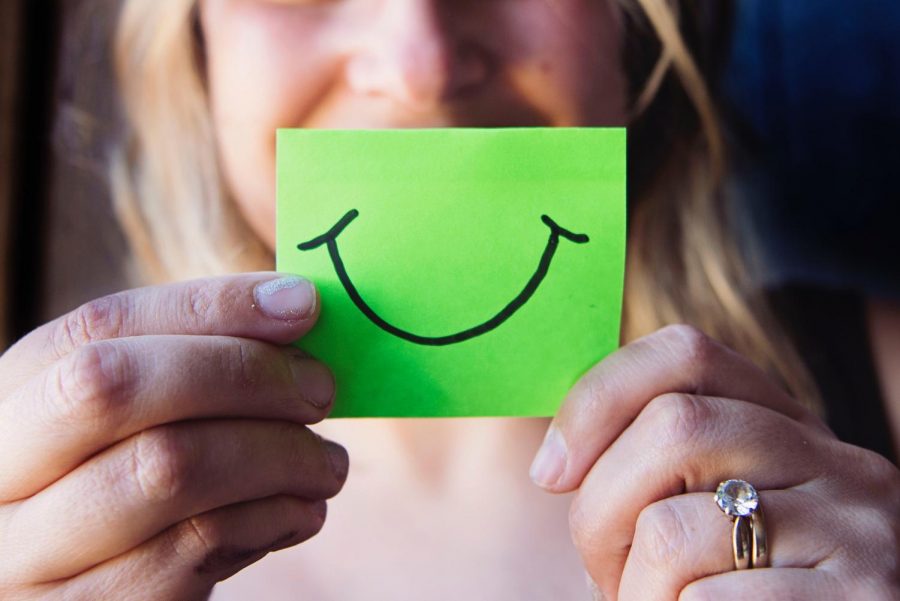Remember to smile during finals week
Smile through finals stress.
Finals week is nearly upon us. The question that needs asking, then, is not if you’re studying hard (which is important too), but rather: other than when finals are finally done (pun intended), when was the last time you smiled? Take a moment to really think about that.
Got your answer?You probably said some-thing to the effect of “doing that is weird,” or maybe that finals week is dedicated to stress, despair, frowns and tears. Perhaps you said that smiling is just not part of the average finals week agenda, at least not until your exams are all over with.
That’s what you think. But the science says otherwise.
A 2017 article from NBC News’ BETTER page asserts that smiling “can lift your mood, lower stress [and] boost your immune system.” Depression, meanwhile, has been consistently shown to have the opposite effects.
According to neurologist Dr. Isha Gupta in the article, smiling triggers the release of the brain chemicals serotonin and dopamine, which are associated with lower stress and greater overall happiness, respectively. Smiling of any kind, whether courteous social smiles or genuine smiles of happiness and laughter, is enough to do the trick.
Interestingly, one of the studies referenced in the article classified smiles into two categories: a standard smile, which engages the muscles around the mouth only and a Duchenne smile, which engages both the muscles around the mouth and the muscle next to your eyes responsible for raising your cheeks when smiling.
The significance of this is that the participants in the study who were explicitly instructed to smile, as well as those with the treatment that forced either a standard or Duchenne smile, reported lower heart rates following recovery from simulated stress than those reported by the group made to not smile.
A related and more-recent joint study by the University of Tennessee, Knoxville and Texas A&M was published this year in the journal Psycho-logical Bulletin. The authors analyzed data from 138 prior studies involving a total of 11,000 participants in order to determine the influence of facial expressions on emotions.
Significantly, they found that facial expressions do indeed affect feelings and emotions, albeit to a small degree. Altogether, the authors’ meta-analysis revealed that smiling increased happiness, scowling increased anger and frowning increased sadness.
According to a 2009 article by Scientific American, if you can’t get yourself to smile enough, perhaps you should consider Botox injections. Well, not literally, at least.
A 2009 study by psychologists at the University of Cardiff in Wales demonstrated that people who are physically unable to frown due to
Botox injections are happier on average than people who can frown. And no, their happiness increase wasn’t just because they thought they were more attractive thanks to their paralyzed wrinkle-makers.
But not everyone can afford to get, nor is everyone okay with getting, Botox treatments. So perhaps we should turn to the lesser two options of the three poisons available: smile more, and try to frown less.
Do you smile at random strangers to encourage positivity in their day?
Maybe give a few “Good luck”s and a heaping helping of “You got this” around campus for good measure? Have you ever tried to smile when you’re feeling sad or stressed out? When you’re making acquaintances or meeting new people while traveling, do you smile to help break the tension-filled ice?
The answer to all of these should be yes, but social norms and anxiety can block these from occurring. So what I’m arguing here is not only to smile more but encourage others to smile too. Spread the virality of smiling, so to speak. Smiling is contagious, after all.
Yes, you’ll look weird at first. Yes, you’ll get weird looks at first. If nothing else, you’ve put a smile on other peoples’ faces
And that smile is hopefully enough to kickstart their happiness in turn.


